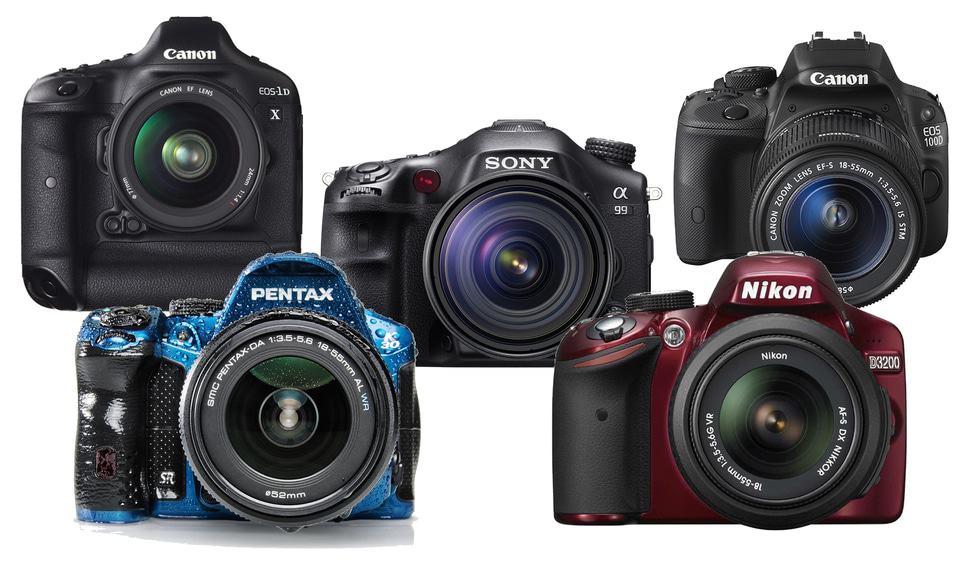One of the most important elements in Photography, is the camera itself, the main tool for recording images. Cameras vary in sizes and shapes depending on their mechanics and sensor sizes. Sensors are the equivalent to Film, and they are always related to that media when it comes to numbers. Numbers will start to pop out more frequently when going deeper into cameras and gear itself. There are a lot of types of cameras out there, and the most popular is Digital Single Lens Reflex cameras, best known as DSLRs.
Before getting into DSLR and which is the best digital camera for beginners, I’ll list down the most common types of cameras that actually exist besides DSLR:
- Point and Shoot cameras: These cameras are used mostly for snapshots and have a lot of limitations when it comes to shooting modes. Nevertheless, there are some great Point and Shoots now that allow Manual Shooting as well as DSLRs. These cameras are a great school for learning about composition, and if Photography is something that really triggers your passion.
- Bridge cameras: These cameras merge the power of DSLRs and the handling of Point and Shoot cameras. I don’t recommend these guys to anybody, because they are quite expensive for what they can do. The best road map is to upgrade from Point and Shoot directly to DSLR.
- Rangefinder cameras: These cameras have a different way of focusing and metering distance, and are great for Street Photography since they are very stealth, inconspicuous and silent.
- Digital Medium format cameras: These are chunky cameras used for specific things such as Commercial shootings.
- Field or Large Format Cameras: Technology hasn’t been able to cope with the massive size of the negatives that go inside these magnificent cameras. They are great for landscape photography.
- Mirror less Cameras: The most recent summit in Cameras, they have the power of DSLR with a fraction of its size, but, they are still fragile and I don’t recommend them to beginners.
The Digital Single Lens Reflex cameras are the Digital version of the trusty Single Lens Reflex cameras of the past. These cameras were built to last, and are still findable and usable. I still shoot with analog SLR cameras when I have the craving of doing something different and slow paced. The only great difference between SLRs and DSLRs is the substitution of the film for a sensor, besides that, they work with the same logic. Light enters through a lens, bounces in a mirror that is behind the lens, goes into a pentaprism that redirects to light to a viewfinder where you can look through. When the shutter button is pressed the mirror bounces upwards letting light go through a chamber where it hits the film or sensor behind a little curtain that also moves when the shutter button is pressed. That’s the simple mechanic behind these amazing cameras.
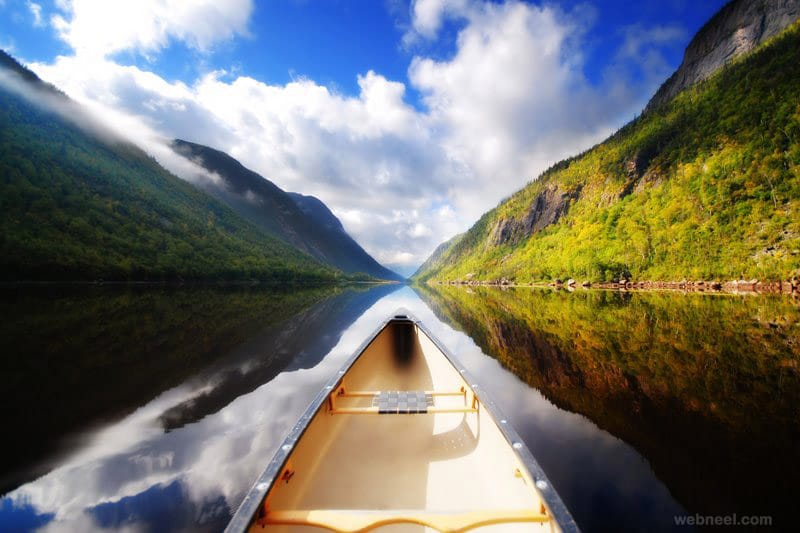
DSLR cameras happen to be the most popular type of camera in the market for a lot of good reasons:
They are Accessible
Many brands have a great range of options in DSLR cameras and have decent price ranges as well. I’ll be very straight forward to you, if you are a beginner, stick to any of these two brands, Canon and Nikon. Why not another brand? Because the other brands, in my personal opinion, have more specialized gear that may be a great option when upgrading. Also Canon and Nikon are great options when upgrading, but since they have a lot of options in cameras, let’s stick to these two brands. Now that we have overcame the great dilemma of which brand, let’s define which camera from these brands, are the best cameras for beginner photographers.
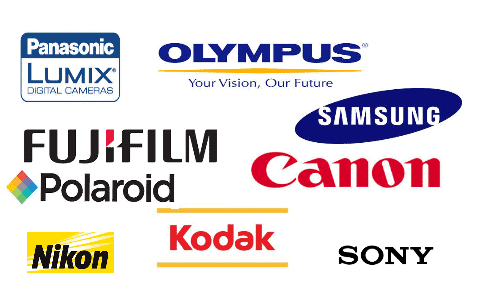
- Canon
Entry level cameras 750D, 70D or 80D
- Nikon
Entry level cameras from D5200, D5300, D5500 and D7200.
All of these are great options of cameras for any beginner. They have powerful sensors, but still not such pricey as the more complex cameras of each brand. And still they give anybody the great experience of shooting in complete manual mode. Shooting in Manual Mode is what you are pursuing to master when it comes to taking a step further from the beginner crowd.
How to choose a brand?
Alright, how can you choose between these two brands? The answer is simple, go to a camera store and grab them both, feel them, play with them, and choose the one that feels more comfortable in your hands and eyes. You can also ask friends to borrow their gear to you so you can take a wiser choice. Many times when we choose a brand, we start investing in lenses and stuff, and it’s harder to move to another brand after this, so it’s good to take your time to base your choice in this premise. Also a good thing to mind about, is the offer of gear near your place. I live in a country that has a wider offer of Canon gear, and the neighbor country (a 4 hours drive) has a great Nikon offer in their market.
They are Powerful
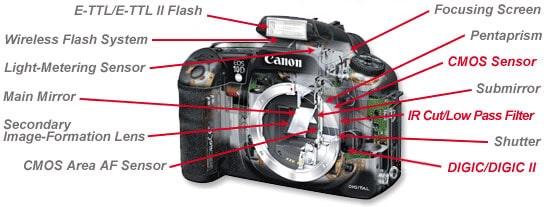
Thanks to technology evolution, these whole group of cameras, even though they are not qualified as “pro-line” are incredibly powerful. They have great sensors, they are durable, and they have great technology inside of them. When it comes to invest, is preferable to invest in lenses than bodies, because bodies tend to evolve more quickly thanks to technology. The great differences between entry level cameras and those defined as pro-line cameras, are basically two: the sensor inside of them, and the materials that come along their engineering. Pro Line cameras have full frame sensors and are built to resist dust and humidity as well as some shocks. You, as a beginner, don’t really need that sort of things yet.
They are Reliable
These cameras are very efficient when it comes to battery life, and are engineered to last as well. They are not so fragile cameras as you may think, and you can put a lot of trust in them as they are not going to suddenly crash, unless something wrong happens.
They are Flexible
Even the most entry level camera, can fit the most expensive lens and flash of their own brand, which is great because the most notorious quality of DSLR is the ability of interchanging lenses to achieve different results. Lenses have their own purpose, and you’ll define which are the best lenses on the progress of knowing more about yourself in relation to photography.
Some things you need to take in mind when buying your first DSLR
Forget about Megapixels
Sensors are what really matters when it comes to photography, so stop worrying about the amount of Megapixels inside a camera. Don’t you ever base your investments in this parameter.
Grab a 50mm
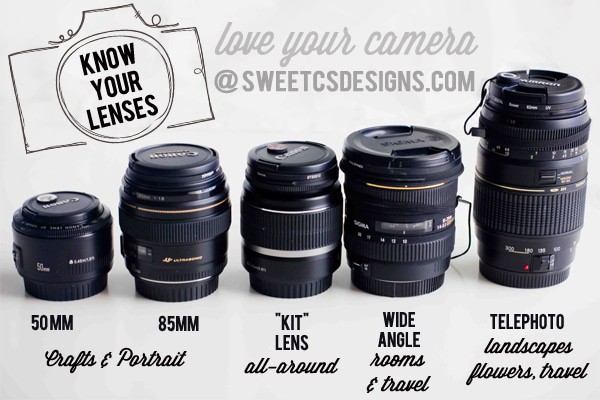
The kit lens is fun, but not so fun. When buying a DSLR, you need to buy also a 50mm lens. Why? Simple, because they are great for experiencing the benefits of interchangeable lenses. Each brand has cheap options of 50mm lenses that are approximately $130.00, really great price when it comes to lenses. 50mm lens is the equivalent of human vision in photography, and it will allow you to define what your needs are lens-wisely by putting yourselves in restrain. If you need to walk a lot for the pictures that you love the most to capture, perhaps you’ll need a telephoto or a zoom lens in the future, if you need more space in your images, perhaps you’ll be willing to work with a wide angle lens in the future to come. Also 50mm offer a great aperture so you can really start enjoying the benefits of shooting manual mode when it comes to the progress of growing as a photographer.
Shoot RAW
Even though you are a beginner, you definitely need to shoot in RAW+JPEG. Raw files are the original file rendered by a camera. You’ll be sacrificing megabytes, but it will put you a restrain also into crazy finger shooting. You’ll be thinking the shots more wisely, and this is a great thing to have when it comes to the growth of a photographer as well.
Let it help defining your style
As in lenses, it will go along with the branch of photography you’ll feel more passionate of. Here are some great branches of Photography:
- Aerial Photography
- Architectural Photography
- Candid Photography
- Close-Up/Macro Photography
- Conceptual/Fine Art Photography
- Documentary Photography
- Fashion Photography
- Food Photography
- Landscape Photography
- Night/Long Exposure Photography
- Photojournalism
- Sport Photography
- Street Photography
- War Photography
What about the other brands?
Well, there are other brands out there indeed. I recently moved myself from Canon to Fujifilm since I think they offer a great choice to Social Documentary and Street Photographers as myself. So I based my recent investment in relation to the field of Photography that I feel more passionate about. I still use my chunky DSLR for specific assignments, but my everyday camera is the X100T, which is an inconspicuous Rangefinder camera. Sony is making Canon and Nikon shaky, but the offer of Sony is more in line with photographers with some advanced skills, since they are a little bit fragile. Olympus has a great Mirror less camera as well. There are also some luxury brands like Leica, Hasselblad and Mamiya Phase One; but we’ll leave them alone for now.
